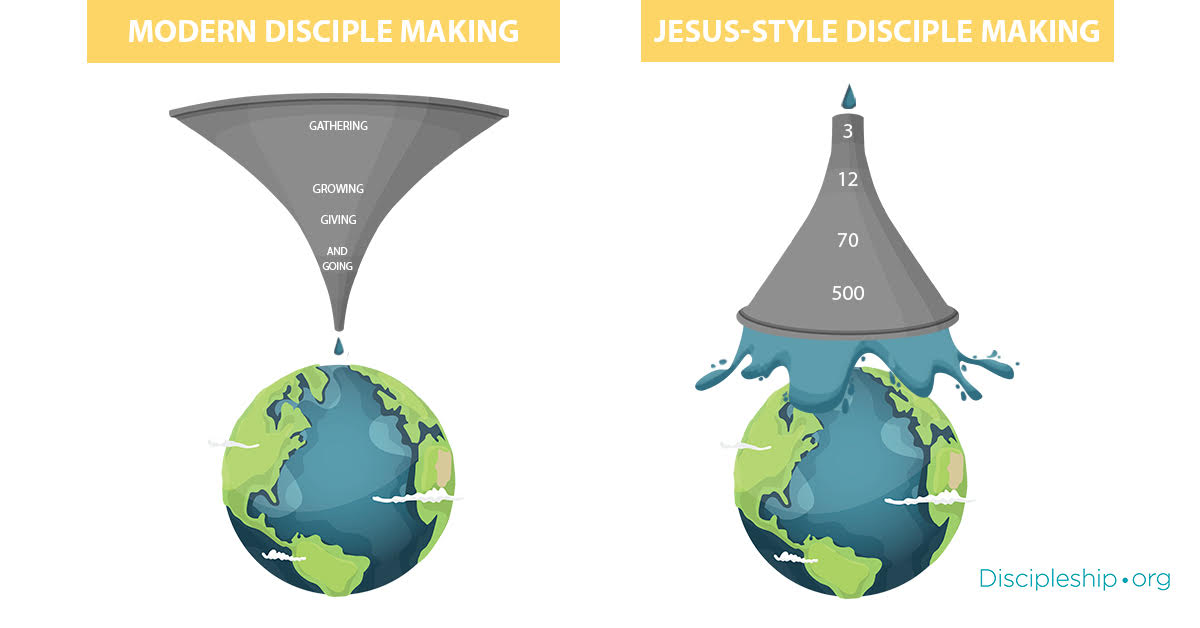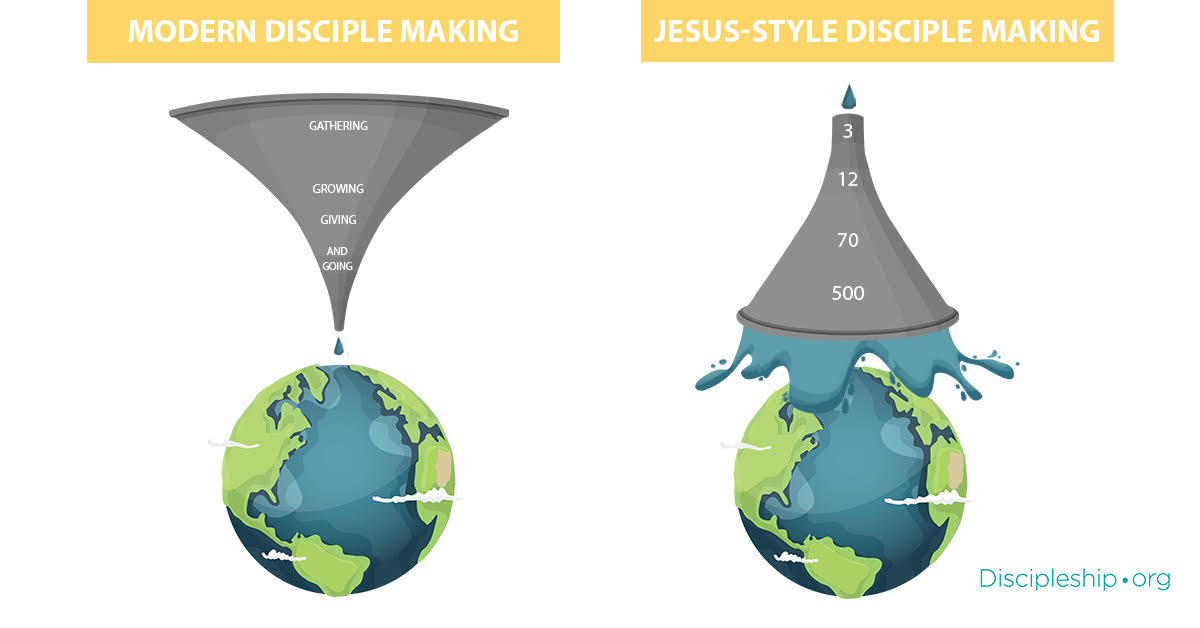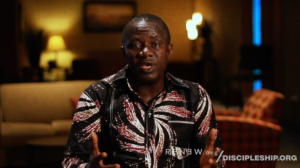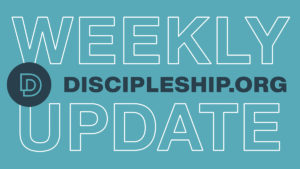10 Top Disciple Making Trends for 2019 (Part 1)
We champion discipleship-first people – those who see life through the lens of being disciples of Jesus who make disciples of Jesus. These people form our tribe. Discipleship.org exists to help the members of this tribe to be faithful and effective disciple makers.
Discipleship.org is like the “chamber of commerce” for disciple making – we aggregate and promote the leaders, organizations, speakers and writers who we consider partners. So as point-leader for Discipleship.org, I get a front row seat to watch and listen to the state of disciple making in our community. Recently over 1400 pastors and leaders from around the country joined over 20 networks/organizations at our third annual National Disciple Making Forum.
I have been prayerfully filtering through many conversations from this forum and our other gatherings and learnings from the past year.
Following is my annual summary of the encouraging trends that I am observing for 2019. The first five are wide-spread observations and the last five are trends we want to explicitly encourage.
1. More and more people are calling for a disciple making focus.
This chorus has been rising for several years. It continues to come from diverse groups: the Gospel Coalition, missional leaders, pastors on the left, the right and down the middle. Most thoughtful Christians intuitively know that our culture is discipling more and more Christians to reflect the values and practices of the world and Christians need a counter-action plan.
It is hard to argue with the assertion that the solution is disciple making. It is what Jesus modeled and taught.
So it makes sense, for example, that a new book on Millennials entitled, The Passion Generation: The Seemingly Reckless, Definitely Disruptive, But Far from Hopeless Millennials would epitomize this trend. The first half of the book points out that the church is experiencing a challenge with millennials simply because that church has neglected discipleship. He shines a clear light on the root issue.
It is not hard to see that many of the problems in the church can be addressed by a switch back to disciple making.
2. There are now many disciple making advocates, but few effective practitioners.
Lots of people are talking about disciple making. It is a regular theme at Catalyst and Exponential and people like David Platt and Francis Chan are speaking and writing about it. And lots of pastors and preachers and ministry leaders have developed their disciple making systems.
But there is a problem.
There are many speakers, advocates and strategists, but few effective practitioners.
It is easier to see the need for disciple making and hypothesize on how it should be done than it is to actually be effective at doing it.
Every time I hear an advocate, I find myself secretly thinking: what is your track record? How effective are you at this craft that Jesus called us to practice? Long term effective disciple making is hard work because helping people grow and change is hard work. People are messy. So a focus on disciple making is a focus on something that requires great love, patience, wisdom, intentionality and skill.
The difference between those who talk about it and those who do it will be found in the depth of understanding, lifestyle, and track record. I am praying for and cheering for everyone who gets in the disciple maker game and stays in there. There is nothing in life more important and challenging.
3. More and more Lead Pastors are looking for help.
It is really tough to be a lead pastor today. I know that first hand because I am one. There are so many challenges. But there may be no greater challenge than the one we face as we seek to switch our ministry focus from Sunday morning programing to Jesus-style disciple making. The following graphic demonstrates the challenge of the two models.

The first thing to note is the outcome of the two models. On the right we see that Jesus created a disciple making movement that, over time, witnessed many disciples who went out and made disciples. Today, on the left, we see lead pastors/ministers who are part of a church service movement that emphasizes Sunday or weekend gatherings. These gatherings do not create the outcome (at the end of the funnel) of disciple making movements.
A shift to a Jesus-style disciple making model can be frightening, even overwhelming, especially for those who are successful with the weekend model. But there is help. There are models and there are guides.
4. People want specific methods and tools.
A few years ago, I found myself regularly making the case for disciple making. As the points above demonstrate, I do not have to do that very much anymore. It has now simply intuitive to most leaders that we must turn back to disciple making. But there is a new challenge that I am facing.
It is usually put to me in a two-part sentence. The first part states their conviction and the second part describes their question. “I do not need any persuasion about disciple making,” they say, “but I want someone to tell me how to do it.”
This is both good and not so good.
It is good because it shows that people have moved beyond the basic question of orientation. They get it. And it is good because they have typically developed convictions and passion around disciple making. But it is not so good because it is hard to tell people exactly how they should do it in their particular context. There are cultural issues to work through. There are church structure and systems issues. And there are theological nuances for all the various denominational tribes.
But quest itself is ultimately good because of the focus on the right question. Knowing how to practically make disciples in my context is where the rubber meets the road. Our effectiveness at this level will determine our success.
5. Networks/organizations are building infrastructures and tools to help.
This is one of the most encouraging developments in the last three years. Here is a list of disciple-making networks/organizations, in alphabetical order, who have partnered with Discipleship.org. These organizations have been building out ministries, and many have developed significant numbers of staff and tools and systems to help churches with disciple making. From the beginning, we have sought to fan into flame the ministries of these entities.
- The Bonhoeffer Project (thebonhoefferproject.com)
- Dandelion Resourcing (dandelionresourcing.com)
- discipleFIRST (disciplefirst.com)
- Downline Ministries (downlineministries.com)
- D6 Family (d6family.com)
- Exponential (exponential.org)
- Faith International University (faithseminary.edu)
- Final Command (finalcommand.com)
- Global Discipleship Initiative (theglobaldiscipleshipinitiative.org)
- Grace and Truth Living (graceandtruthliving.com)
- Impact Ministries (impactdisciples.com)
- Life-on-Life Missional Discipleship (lifeonlife.org)
- LifeWay (lifeway.com)
- Lionshare (lionshare.org)
- National Coalition of Ministries to Men (ncmm.org)
- Navigator Church Ministries (navigatorchurchministries.org)
- Radical Mentoring (radicalmentoring.com)
- Relational Discipleship Network (relationaldiscipleshipnetwork.com)
- Renew Network (renew.org)
- Replicate (replicate.org)
- Small Circle (disciplexchange.com)
- Sonlife (sonlife.com)
- TCM International (tcmi.org)
- Untangle Addictions (untangleaddictions.com, healthymindmd.com)
I am grateful for the growth of these organizations because they are all helping to provide churches with the kind of specific guidance, coaching, systems, tools, etc., that are necessary for systemic change.
The first five trends are very encouraging and inspiring. We are grateful to God for each one of them.
In our newsletter and blog next week, we will transition from describing current trends – as we have in the first five – to prescribing trends.
We advocate for them because we believe they are needed. They are foundational to the long-term effectiveness of the discipleship-first tribe.
Here is a preview:
6. People need God’s Word.
7. People need simple ways to get into God’s Word.
8. People need Life-on-Life Relationships.
9. People need an emphasis on “Obedience-based Discipleship.”
10. Leaders must learn how to Fast and Pray for effectiveness.
We believe it will be an exciting year.
At Discipleship.org we look forward to what God is going to do through you. We hope to serve you as your trusted guide and cheerleader. Disciples of Jesus who seek to make disciples of Jesus have the greatest mission on planet earth—in any culture, in any place, and at any time.
But especially in 2019!
Written by Bobby Harrington
Bobby Harrington is the Executive Director of Discipleship.org, a national platform, conference, and ministry that advocates for Jesus’ style of disciple making. He is the founding and lead pastor of Harpeth Christian Church (by the Harpeth River, just outside of Nashville, TN). He has a Doctor of Ministry degree in consulting and has spent years as a coach to church planters and senior pastors. He is the author of several books on discipleship, including DiscipleShift (with Jim Putman and Robert Coleman) and The Disciple Maker’s Handbook (with Josh Patrick).







Thanks Bobby. I think your observations are right on target. I especially appreciate your second point that there are many advocates of discipleship but few who really practice it in their ministry and daily lives. I am one of those pastors who see the importance of shifting from the Sunday morning program focus to a consistent discipleship model. What I am looking for is practical help to turn my convictions into actions. Thank you for what you guys are doing to be a catalyst in helping others become disciple makers.
Thanks for this important post. I apologize for my pedantic comment but I just find the thin line, ‘greyed’ font hard on the eyes to read–and I’m on a 4k monitor. Black is best.
But I stuck with it because it’s worth reading.
Good morning Bobby. May the Lord bless you for your discipleship teaching and focused. I conducted my first discipleship orientation yesterday. It was five people available for the orientation. Next week will be the first class. I will be drawing on everything you are sharing with me and other resources as well. Just wanted to say I am excited about this new beginning. I want to become a level 5 disciple maker. I will fast and pray and implement what I am learning everyday.
I love the funnel/ world graphic – that is such a helpful way of picturing how so much of the Western church operates. It makes me pray that I will invest more deeply and effectively into others – who themselves will then go and live as disciple-making disciples of Jesus.
Thanks Bobby for the work of discipleship.org!
There is a lot of truth here in this article. Especially in the concern of many advocates yet few effective practitioners. Then the need for life on life practices in disciple Making. Our example being Christ Himself as described in John 3:22. The traditional church culture is pastor driven and yet Christ advocated a much grander scale of active reproducers in His command and demonstration of such. Then the book of Acts shows that first century church in surrendered obedience to the command; make disciples of all nations. All children of God were involved for that is the only way to account for the growth of the church recorded therein. Then they took the gospel to the whole known world inside of 70 years from the Day of Pentecost. Yet, what do we have today with all of our mega churches, missionaries, programs, resources and technology, not to mention the fact we have the full council ogf the word of God. Remember, they were still writing the New Testament. Today, on this planet we have a minimum of 4.5 Billion people who have never heard a redemptive word of Christ Jesus. That is my fault. If I do not believe that then I will never do anything to correct that. Jesus poored Himself into 12 men and commanded them and us to repeat His disciple making process, then to never stop until the end of the age. Matthew 28:16-20 This is His only plan to win this world and glorify His father! John 17:4, John 15:8 There is no plan B! My prayer is that you continue in this as I will also! Each of us one with Christ and the Father as well as each other. This is Christ’s prayer for us! John 17: 20-21